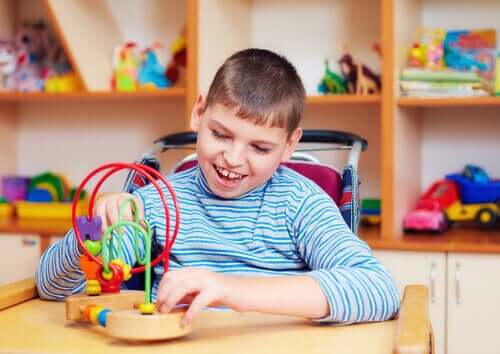How to Help Children with Autism During Lockdown


Written and verified by the doctor Leonardo Biolatto
Since 2007, member states of the United Nations have recognized April 2nd as World Autism Awareness Day. With that in mind, numerous organizations dedicated to the treatment of ASD (Autism Spectrum Disorder) published a series of recommendations this month about how to help children with autism during lockdown.
As a result of the current COVID-19 pandemic, most of the world is living in home confinement. This makes for a difficult situation for any family. However, when it comes to households where a member of the family has autism, it can be much more difficult, given the characteristics of this condition.
Autism Spectrum Disorder

Before delving into the recommendations for helping children with autism during lockdown, we should first define ASD. ASD, or Autism Spectrum Disorder, is a neuro-biological developmental disorder. It affects the brain’s ability to develop and maintain social abilities and communication.
ASD normally becomes evident during the first years of life. In general, before a child reaches the age of 3. The effects on social and communication abilities are evidenced within the framework of a behavior disorder and difficulties relating to one’s environment.
In short, people with ASD tend to possess fewer social, emotional, and communication skills. For that reason, in the face of the current mandatory confinement, it’s crucial that individuals with autism receive special attention.
The particularities of this disorder make people with autism more vulnerable. Therefore, they depend permanently on the intervention of special helpers, who may not be available right now. So, let’s see what we can do to help children with autism during lockdown.
Autism during lockdown
For individuals with ASD, routines are fundamental. Therefore, the closing of schools, workplaces, medical centers, etc. has impacted them especially. Routine activities are what help people with ASD to organize their daily lives and give them the security they need.
Dealing with lockdown can be especially difficult in the case of children with autism. This disorder is very heterogeneous, to begin with. Therefore, during this period of confinement, some will be able to tolerate the situation without major challenges. Others, however, may become overwhelmed, aggravated, or depressed.
In the face of this reality, some governments have decreed exceptional authorizations for individuals with autism and their carers. These authorizations allow people with autism to leave their homes under certain conditions. The purpose is to provide short outings as a means of therapy to care for these individuals.
Each country determines the specifics of these authorizations. In general, individuals or their carers must carry a certificate of disability to verify their condition. What’s more, most countries also recommend that children with ASD wear a blue ribbon or insignia. This helps others identify them as autistic.
You may also want to read: Activities for Children During Coronavirus Isolation
Children with autism in the face of the coronavirus pandemic

Schools have closed their doors. Medical and therapy centers are operating with minimal staff and focusing on emergencies. It’s nearly impossible to go to public places or go on outings. As a result, families are asking themselves how they can help their children with autism during lockdown.
Many organizations have offered answers to that question. One of the recommendations on which they all agree is to create routines that help children organize their daily life. They highlight the importance of establishing schedules, as people with autism need predictability, clarity, and anticipation of coming events. All of this will help reduce anxiety levels.
Another recommendation is for families to talk to their children about what’s going on. It’s comforting for them to understand what this lockdown is about and how long it will last. It’s also important to explain to children how they should look after themselves and why it’s important (social distancing, handwashing, etc). When it comes to children with autism, it’s best to rely on audiovisual props, books, and concise explanations. You can find many of these resources online.
Also read: Maintaining Healthy Habits During Confinement
More recommendations regarding autism during lockdown
Besides helping children understand what’s going on, it’s also important to transmit peace and calm. The message you give them should be clear and simple. Don’t offer excessive amounts of information, and be sure to base your explanations on trustworthy sources. It’s important to maintain a calm environment in order to avoid anxiety and stress.
Finally, it’s important for the carers of people with autism to look after themselves as well. Self-care is key when it comes to being able to create routines, offer information in a calm manner, and give your children the attention they need.
All cited sources were thoroughly reviewed by our team to ensure their quality, reliability, currency, and validity. The bibliography of this article was considered reliable and of academic or scientific accuracy.
- Mulas, F., Ros-Cervera, G., Millá, M. G., Etchepareborda, M. C., Abad, L., & Téllez de Meneses, M. (2010). Modelos de intervención en niños con autismo. Rev Neurol, 50(3), 77-84.
- Martínez Martín, M., & Bilbao León, M. C. (2008). Acercamiento a la realidad de las familias de personas con autismo. Psychosocial Intervention, 17(2), 215-230.
- Montañés, M. (2013). “Su hijo es autista”: un análisis crítico desde la realidad familiar.
This text is provided for informational purposes only and does not replace consultation with a professional. If in doubt, consult your specialist.








